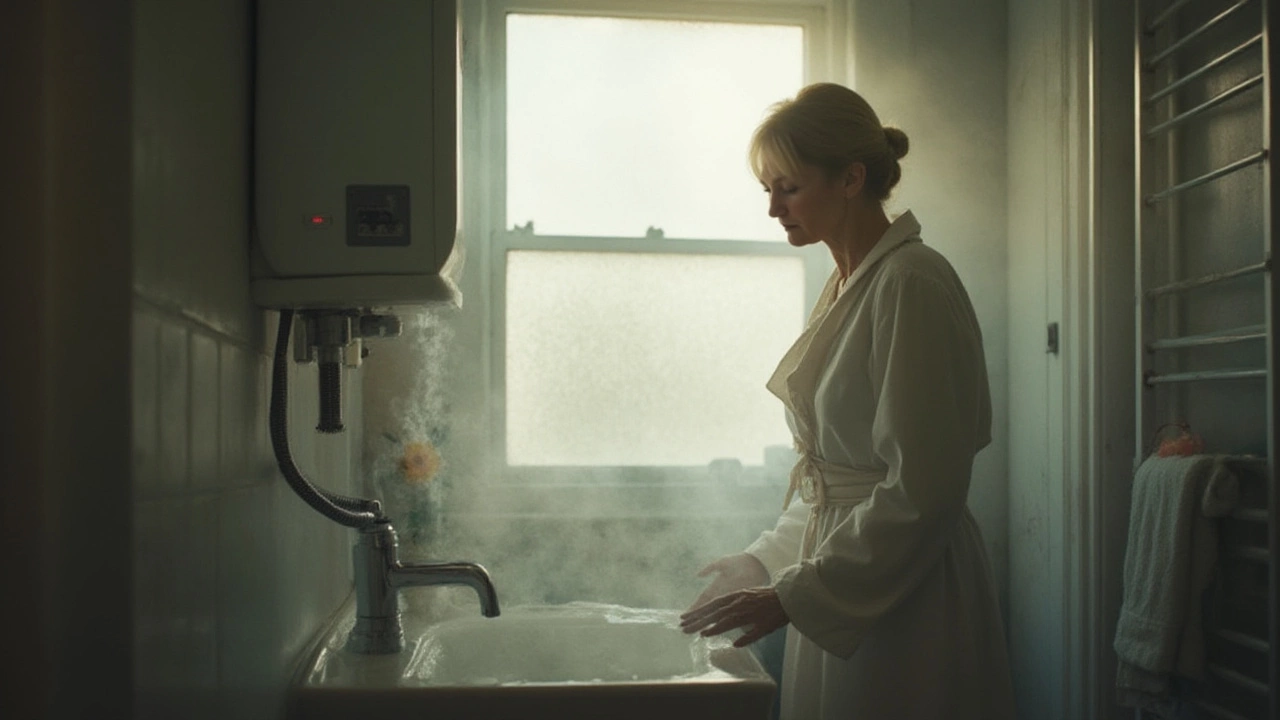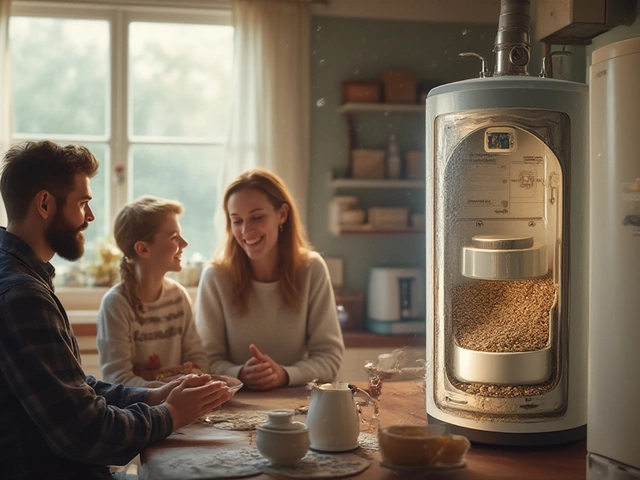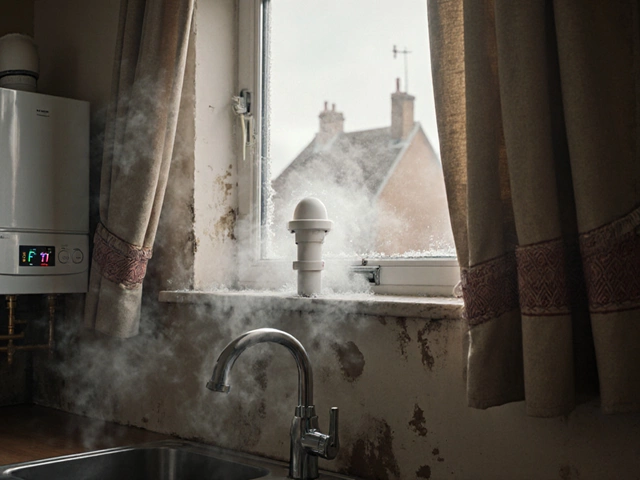You jump in the shower, expecting hot water, but instead, you’re hit with icy droplets. Frustrated, you trek over to your water heater, hit reset, and magically, hot water returns—for a bit. Why does this keep happening? Water heaters aren’t meant to need resets regularly. If yours does, you’re not alone, but it’s a red flag you shouldn’t ignore. This isn’t just an inconvenience, either—it can be a warning that something in your system is crying out for attention.
What Triggers Your Water Heater Reset Button?
Let’s get this out of the way: the reset button exists as a safety net, not as a daily solution. It’s technically a high-limit switch, also called the emergency cutoff. If the water inside the tank gets too hot—past a safe point—this switch flips off to stop a meltdown. But why is it getting hot enough to trip in the first place? Here’s where things get interesting.
One common cause is a faulty thermostat. It’s meant to regulate the water temperature, but if it fails, the heater keeps running and turns your tank into a sauna. Not a fun surprise unless you like scalding showers. Sometimes, mineral buildup inside the tank can force your elements to overwork, leaving them stuck on for longer than they should be. Imagine wrapping your kettle in a blanket of limescale and expecting it to behave—it’s not happening.
Another possible villain here is a broken heating element. Electric water heaters have two—top and bottom. When one fails, the heater tries to compensate, often straining the system and leading to overheating. Plus, damaged wiring or loose electrical connections can cause the reset to trip again and again. Loose wires can overheat quickly, which the switch sees as a problem. It’s doing its job, but it also means you’ve got an issue to fix.
Let’s not forget external water pressure. If it’s too high, your heater could overheat while trying to keep up. The ideal pressure for UK homes sits around 2 to 3 bar. Anything above this and your plumbing appliances, not just the water heater, are taking a pounding. Want a real stat? Up to 70% of British homes are in hard water areas, which puts extra stress on heating elements, thanks to scale buildup.
Finally, insulation problems spell trouble. Poor insulation around the tank means the system has to work harder to keep water hot, sometimes making it overshoot safe limits. Even a damaged or missing insulation jacket can lead to these headaches. While these issues are more common in older homes, don’t rule them out just because you’ve got a shiny tank. Faults can happen with new installations too, especially if shortcuts were taken or components weren’t checked on installation.
How do you spot which of these is your nemesis? Here’s a practical tip: check the age of your water heater. Most electric water heaters in the UK last about 8–12 years. After the 10-year mark, expect more hiccups—especially if maintenance wasn’t top of your to-do list.
| Possible Cause | How It Triggers Reset | Frequency in UK Homes (%) |
|---|---|---|
| Faulty Thermostat | Overheats water, trips limit switch | 44 |
| Limescale Buildup | Overheats elements, confuses thermostat | 70 |
| Broken Heating Element | Overheats remaining element, random shutdowns | 35 |
| Bad Wiring/Connections | Causes unsafe heat spikes | 20 |
| High Water Pressure | Overloads heater, overheats water | 29 |

Practical Steps: Things You Can Check Before Calling for Help
No one wants to fork out for a plumber before ruling out the obvious. Good news: you can do a few sensible checks without risking your safety or voiding warranties. Start by looking at your thermostat settings. For electric heaters, aim for that Goldilocks zone of 50–60°C (120–140°F). Anything higher, and you’re risking burns and triggering your water heater reset again. Lower? You’ll be signing up for lukewarm showers and higher bacteria risks.
Next, check if the reset keeps needing that nudge after every use or only now and then. Constant resets often point to a bigger problem than a one-off surge from, say, an overnight power cut. If your thermostat’s cover plate feels warm to the touch or shows burn marks, stop poking and call a professional—burn marks equal fire hazards.
Live in a hard water area? Descale your water heater regularly. Once a year is the bare minimum, but every six months is smarter if you’re in the South East or East of England, where limescale builds up fast. You don’t need fancy gear either. Simple descaling solutions or a vinegar soak can work wonders. Some new models even have “anti-scale” modes; check your manual for clever features you might be ignoring.
Inspect your pressure relief valve, usually on top or the side of your tank. It should release a burst of water if you lift the test lever—no action means it might be stuck, which is unsafe. A failing pressure valve can let your tank overheat, causing those pesky reset trips. Don’t force or hammer on the valve, though; replacing it is quick and affordable for a plumber.
Don’t forget your home’s water pressure. You can buy a cheap gauge from a DIY shop for around £10. If readings creep higher than 3 bar, consider a pressure-reducing valve. It protects all your plumbing, not just the water heater. High pressure might feel great in the shower, but it cuts appliance lifespan, drives up leaks, and leads to—yep—reset button drama.
If you’ve moved into a new place, ask about past water heater issues. Sometimes old wiring or cheap “quick fix” installations come back to haunt the next owner. Keep an eye (and ear) out for humming, popping, or crackling sounds too. Odd noises often mean sediment or limescale is at work on your heating elements. Noises shouldn’t be ignored as background static—they tell you when the system needs attention.
- Quickly check settings: Thermostat not set above 60°C.
- Visual checks: Look for burn marks or melted plastic on wiring covers.
- Descaling: Plan annual cleaning if in hard water regions.
- Pressure test: Keep home water pressure under 3 bar.
- Strange sounds: Listen for banging or popping—signs of sediment.
If everything looks right but the problem keeps happening—you’re not out of the woods. A professional can use a multimeter to check thermostat continuity, inspect elements for shorts, or get inside wiring sorted safely. For gas-powered water heaters, don’t tinker at all. Modern UK law says only Gas Safe-registered engineers should tamper with gas appliances. No exceptions, no matter how handy you are with a spanner.

How To Keep Your Water Heater Running Smoothly (and When to Get Help)
Water heaters are often ignored—until they leave us shivering. Keeping them healthy doesn’t need a degree in engineering. Dial the temperature back to 55°C as a sweet spot for comfort and energy savings. This also lowers pressure on elements and extends your heater’s life. Remember to insulate. If you can feel warmth on the outside of a metal tank, it’s leaking energy and money. Modern “jacket” insulation is cheap and pays for itself in under a year for most UK homes.
Hard water is a beast, but you can tame it with a water softener if descaling gets old. These units can cut limescale by 80%, and while they aren’t cheap upfront, they’ll save you on plumbing bills down the line. Keep your eye on the anode rod inside the tank, too—this little metal rod “sacrifices” itself to stop rust eating up the inside of your tank. Swapping it every few years can add years to your heater’s life.
If you set up a simple yearly checkup, you can spot small issues before they become cold showers. Replace worn valves, check thermostat function, and have a pro check element resistance. DIY is fine for pressure checks or cleaning out sediment, but call a professional for wiring, part replacements, or anything to do with gas lines. The small upfront cost can save you from a costly and unexpected breakdown when you need hot water most.
Heating water takes roughly 18% of the average British household’s energy usage, according to the UK Department for Business, Energy & Industrial Strategy. Appliances running below par crank up bills and carbon emissions. Ever noticed your water heater hissing, rumbling, or shutting down after a noisy cycle? That’s your cue to step in—don’t just keep resetting and hoping for the best.
You’ll thank yourself for nipping water heater issues in the bud. If resetting your water heater has become your regular routine, it’s never “just a quirk.” There’s always a reason—and sorting it now means fewer surprises, lower bills, and a longer life for your hot water heater.




